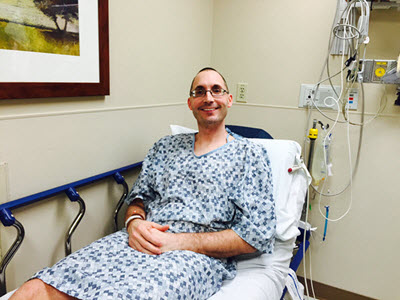There are special cells in your heart that are responsible for creating electrical signals. These electrical signals then travel along certain pathways to reach the chambers of your heart to keep your heart beat in the proper sequence. You may develop rapid or irregular heartbeats, also called arrhythmias, if there are abnormal cells creating disorganized electrical signals. Your heart fails to pump blood effectively in this situation, which may make you feel short of breath, weak and faint. While there are medicines to help treat arrhythmias, some people require catheter ablation.
The Recovery Process After Cardiac Ablation

Under normal circumstances, cardiac ablation recovery takes a few days only. You can resume your normal activities in a few days. Here is more about the recovery process:
- After your surgery, your doctor will remove the catheters. They will apply pressure to the insertion site to avoid bleeding. It is important to stay still for at least six hours to lower risk of bleeding. Your doctor will keep an eye on your heart rhythm for a while using a telemetry monitor.
- You may return home the next day of your surgery. There may be some chest discomfort, but it usually goes away in a couple of days. Expect some heart palpitations or atrial fibrillation after your procedure, but these usually resolve when your heart heals itself. This can take up to 3 months.
- You may have to take anticoagulants, such as Pradaxa or Coumadin for 3-6 months. This is to prevent the formation of blood clots. After this period, your doctor will use the CHADS2 scoring system to know if you still need to be on anticoagulant.
- You may have to avoid baths for a week or so. It is also important to stay away from heavy lifting for a week after your procedure. It is important to give your body some time to heal itself, so take rest if possible.
- Your doctor will ask you to come for follow-up visits, and he/she will perform certain tests during these visits to confirm everything is working fine. Some of the tests include computed tomography, echocardiogram, electrocardiogram, etc. Your follow-up visits will begin in the first three months of cardiac ablation procedure, and they may continue for a couple of years. You usually need to show up at 6-month intervals after the first three months of your procedure.
Note: During cardiac ablation recovery, you may experience some atrial flutter or atrial fibrillation, which is mainly the result of inflamed heart tissue. Therefore, it is hard to determine the success of the procedure in the first three months.
What Else Can You Do for a Better Recovery?
Along with working with your doctor, you will have to take some other steps as well for a better recovery. Here are some suggestions:
1. Lifestyle Changes
It is important to make certain lifestyle changes following your procedure to keep your heart healthy. It is equally important to protect yourself from conditions that can make arrhythmias worse, such as high blood pressure. Do the following:
- Limit your intake of salt to control blood pressure.
- Stay active and include exercise in your routine.
- Stay away from smoking and alcohol.
- Include heart-healthy foods in your diet.
- Manage stress and strong emotions, such as anger.
2. More Tips
- Be sure to talk to your doctor immediately if you notice any bleeding at the puncture sites. It is easy to control small amounts of oozing – just apply a little pressure to stop it. You should seek medical attention if the bleeding becomes worse.
- You should also talk to your doctor if you have a temperature higher than 101 degrees Fahrenheit during the cardiac ablation recovery process, as this could indicate an infection.
- Consider taking diuretics if you have gained weight. This will help treat fluid retention which is common after the procedure.
- Take complete rest for at least a week and then return to your normal activities. Stay away from strenuous physical activities for at least a couple of weeks.
- Avoid driving for at least a couple of days after procedure.
- Eat smaller meals more frequently to avoid dealing with digestive problems. Ask your doctor for help if you have acid reflex, bloating, or other digestive issues.
3. Know When to Seek Immediate Medical Help
During your cardiac ablation recovery, you should seek immediately medical assistance if you notice:
- Severe swelling around the puncture sites
- Bleeding from the puncture site that is getting worse with time
It is also important to talk to your doctor in case you notice your leg become numb after the procedure. Here are some other signs that you should consult your doctor:
- You notice the area around the puncture site look bruised.
- You notice swelling become worse with time.
- You have discomfort in your chest that radiates to your jaw, neck, or arm.
- You sweat a lot or feel sick.
- You have an irregular or fast heartbeat.
- You feel out of breath, lightheaded, or dizzy.
